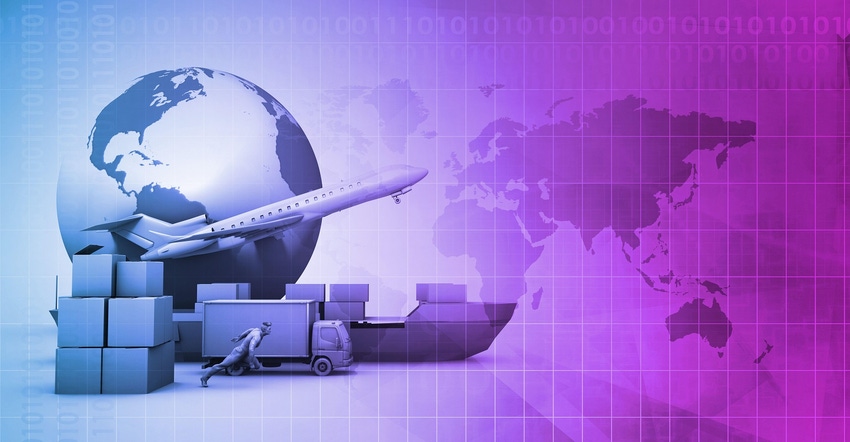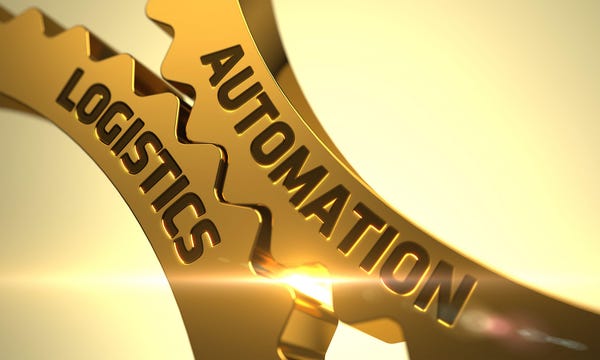Automation is Changing the Delivery Industry
Accuracy, efficiency, and speed in logistics require sophisticated automation tools.
November 9, 2022

Edward Routh, CEO of Relloe
Automation, particularly the logistics within the delivery industry, is often thought of as autonomous trucks, forklifts, assembly lines, and other large robotic machinery. But automation affects back-office operations in the cloud more so than on the ground in a warehouse.
The logistics industry is a $2 trillion industry. The industry strives to decrease delivery times and improve accuracy by reducing the risk of errors. Automation technology is the primary contributor to these improvements, which generally include small adjustments across virtually every stage and level of a supply chain, pipeline, schedule, and channel.
Improving Accuracy
Documentation is the blood of the logistics industry. Without documentation, nothing can move from one location to the next in a timely and transparent manner. Seamless is the name of the game; completing paperwork accurately should be effortless for the boots on the ground and in-office teams. Manually reviewing, transcribing, and sharing documentation is a process that is too complex and fragile to leave up to humans alone. Automation decreases the time taken to complete each step in a delivery process, and it also ensures that the most crucial part — documentation — is completed accurately.
For example, teams responsible for data-entry encounter various scenarios related to numerous customer-created formats and inconsistencies, nuances, and legibility of handwriting. This has led many operators and teams to adopt alternative automation solutions such as intelligent document processing (IDP).
Powered by artificial intelligence (AI) equipped with machine learning abilities, IDP enables end-to-end automation for the documentation process for traditional formats as well as unstructured formats such as PDFs, images, and handwritten forms. IDP can convert any of these document formats into structured, machine-readable information with greater speed, accuracy, and efficiency than a human being can. Human management of these processes can lead to upwards of 12% of revenue loss and an unmeasurable loss of time needed to correct any mistakes made in the process. These inefficiencies span multiple industries — not just logistics — and automation technology has been proven to be a successful resolution for all industries it has successfully been integrated with.
Reducing Costs
One of the biggest components of streamlined automation is data entry. Leaving data entry input to be completed punctually and accurately by human operation will result in an error. Obviously, some people will have a low error rate, but they won’t be free from error.
In contrast, automated data entry is always free of error, saving on costs by avoiding the time and money that would otherwise be spent on correcting mistakes due to the decreased labor it requires. Although an automated system generally requires one person to set it up and ensure it’s running properly, once an automated system is running, it eliminates the cost of labor for the tasks it automates.
Security Is Critical
There are several other areas where automation provides solutions. Data security would arguably be one of the most important components that automation technology has improved.
Cybersecurity is one of the biggest priorities, if not the top priority for logistics and shipping companies, especially since cyber-attacks can lead to lost data in addition to lost revenue. Losing data can set back companies several years, and even affect them so severely that their operations are left crippled. When a cyber-attack occurs, a business can lose control of the entire enterprise and/or incur a substantial amount of money in recovering any lost data. This has led companies to invest in premium cybersecurity services to ensure an attack of this nature never succeeds.
It’s important to learn from other companies' mistakes or lack of keeping up with the times. Historically, stand-alone comprehensive cybersecurity software and utilizing standardized strategies have proved to not be enough to adequately secure a company's data. Cybercriminals and hackers have evolved their techniques and strategies alongside advancements in technology, meaning shipping and logistics firms must recognize the significance of leveraging the power of cybersecurity automation. When a hacker launches a cyber-attack, a quick response time is crucial to fending them off. Just like in a public crisis, companies that do not respond within the first 24 hours are more prone to experience major consequences.

Cybersecurity automation is when machine-based executions issue actions to systematically detect, investigate, and resolve cyber threats with or without human intervention. This process is done by monitoring incoming threats, collecting and prioritizing security alerts, and then responding to them with preprogrammed actions based on initial setup in a timely manner. Today, many logistics and shipping companies utilize AI and machine learning to automate all — if not, the majority — of their cybersecurity measures.
By establishing an automated system that detects any activity that could be considered a cyber threat to a company's systems, companies can ensure their data, business, and employees are protected. As the world becomes increasingly digitized, cybercriminals have more opportunities to steal, damage, exploit, and manipulate different components and aspects of the company. Oftentimes, if one department or process is rendered inoperable, it will cause a ripple effect that impacts the entire organization. Cybercriminals don’t need to control every aspect of a company or even the most important ones — they only need to take hostage of one component.
Overall, automation technology is extremely powerful and provides multi-faceted solutions that reduce cost, improve efficiency, and ensure the security of the most precious assets of a company — all of which leads to generating more revenue.
In 2020, Edward Founded Relloe, a Supply Chain as a Service platform that helps businesses manufacture and transport products, while providing end-to-end visibility over their supply chain.
You May Also Like



